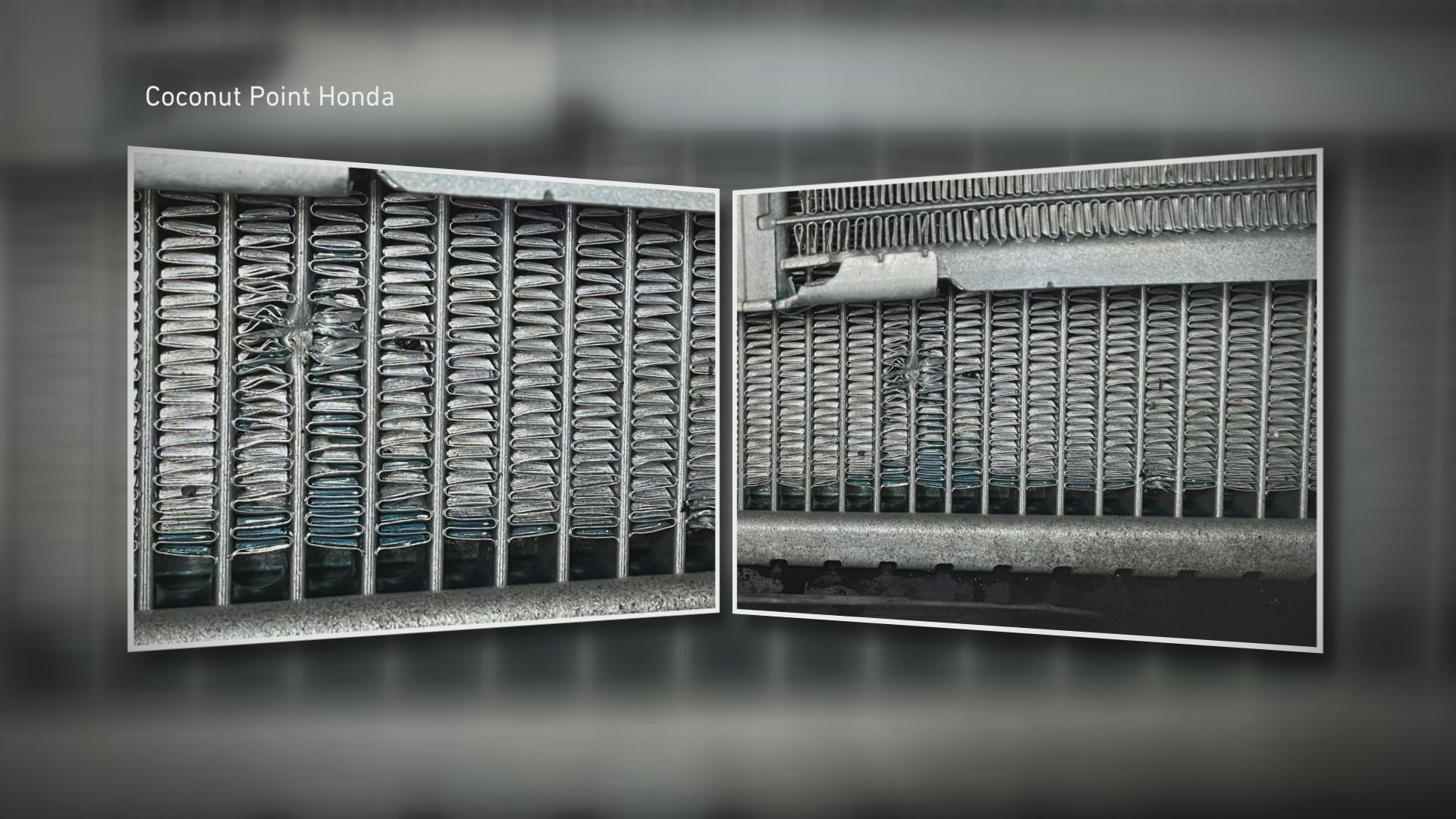Pandemic-related disruptions have cast a long shadow over global supply chains, and while some sectors are showing signs of recovery, the automotive parts industry is still facing significant headwinds. If you’re wondering, Are Car Parts Hard To Get Right Now? The answer, unfortunately, is often yes. Factory shutdowns, ongoing supply chain bottlenecks, and labor shortages are creating a perfect storm, making it challenging and time-consuming to source essential components for vehicle repairs.
Dayna Welch experienced this firsthand when her 2024 Honda HR-V, barely a few months old, developed a radiator leak. Having recently leased the vehicle after a car accident in November, she was understandably dismayed to find herself facing another vehicle issue so soon. “I hadn’t made the third payment,” Welch explained, highlighting the frustration of encountering problems with a brand-new car. Upon taking her HR-V to Coconut Point Honda, where she leased it, the diagnosis confirmed a radiator issue. The service department’s multipoint inspection report clearly indicated the problem, but the solution was far from straightforward.
“The radiator went on me,” Welch stated. Compounding the issue, she was informed that loaner vehicles were unavailable, and more critically, the necessary radiator was on “critical backorder.” This industry term essentially means the part is unavailable and there is no immediate indication of when it will become accessible. Welch’s predicament is not unique; it reflects a broader trend impacting countless vehicle owners.
Deborah Robinson, Executive Director of the National Auto Body Council, confirms the ongoing challenges. “There have been shortages in parts, both mechanical parts and collision repair parts,” she explained. Robinson points to the lingering effects of COVID-19 on the supply chain as a primary factor, alongside persistent labor shortages within the automotive industry. This combination of factors has created a situation where even routine car repairs can be significantly delayed, leaving drivers stranded and inconvenienced. For many, a car is not just a convenience but a necessity for work, family, and daily life.
The ripple effect of these shortages is felt throughout the automotive ecosystem. Dealerships and repair shops are struggling to complete repairs promptly, and customers are facing extended wait times and uncertainty. American Honda acknowledged these challenges in a statement, noting the “unprecedented global supply chain challenges affecting multiple automakers and industries.” They stated they are working to resolve backorders but recommend customers work with local dealers and contact Acura or Honda customer service for assistance if needed. However, manufacturer statements offer little immediate relief when a vehicle is out of commission and essential parts remain elusive.
For Welch, the initial estimate to replace her radiator was nearly $1,600, with no estimated time of arrival for the part. Coconut Point Honda clarified that because the damage was deemed non-warranty related, a rental vehicle could not be provided. Facing mounting expenses for a rental car on top of her lease payments, Welch was understandably distraught. Her situation highlights the financial strain these delays can impose on car owners, especially those with limited financial flexibility.
Fortunately, Welch’s employer at Naples Motorsport intervened, contacting Honda of Fort Myers on her behalf. In a remarkable turn of events, Honda of Fort Myers stepped in to help, providing a radiator from a used 2023 HR-V and completing the repair at no cost to Welch. Their willingness to assist a single mother in need showcases a positive example of customer service amidst widespread challenges. While Honda of Fort Myers’ solution was commendable, it underscores the ad-hoc nature of navigating these shortages – relying on resourcefulness and goodwill rather than consistent parts availability.
Navigating Car Part Shortages: Tips for Car Owners
If you find yourself facing car trouble and potential parts delays, here’s what the National Auto Body Council recommends:
- Shop Around: Don’t assume that if one repair shop can’t source a part, no one can. Contact multiple dealerships and independent shops. Like Honda of Fort Myers, some may have creative solutions or access to parts through different channels.
- Understand Your Warranty: Review your vehicle’s warranty coverage to understand what repairs are covered and under what circumstances.
- Consider Rental Car Coverage: If your current auto insurance policy doesn’t include rental car reimbursement, consider adding it. This coverage can be invaluable if your car is out of service for an extended period due to parts delays after an accident.
- Ensure Roadside Assistance: Make sure your insurance policy or a separate provider includes roadside assistance. This can be crucial for getting your vehicle towed to a repair shop in the event of a breakdown.
- Plan for Contingencies: Have a plan in place for transportation alternatives should your car become unavailable. This might include public transport, ride-sharing services, or arrangements with family or friends.
- Keep Trusted Shop Information Handy: Identify a reputable auto body shop or mechanic you trust and keep their contact information readily available, so you know where to direct a tow truck if needed.
While the automotive industry is working to resolve these supply chain issues, the reality is that car parts can still be hard to get right now. Being proactive, informed, and resourceful is the best approach for car owners to navigate these challenges and minimize disruptions to their lives.
